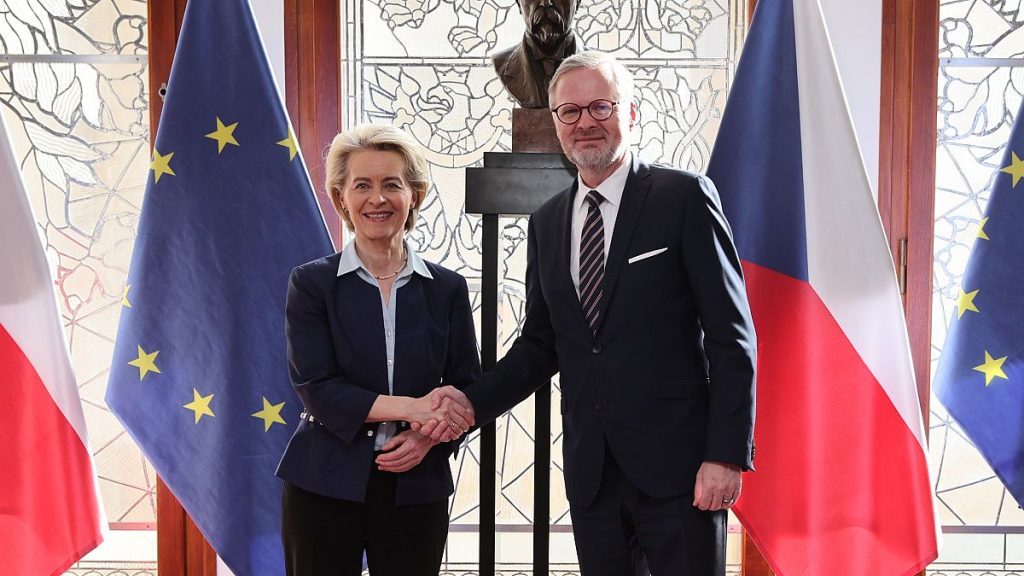European Commission President Ursula von der Leyen is facing a challenge in balancing the gender and political representation among the candidates vying for prestigious economic roles within the EU executive. Many men are seeking these limited positions, creating a puzzle for von der Leyen as she seeks to ensure some level of political and gender balance among her senior staff. She has the task of filling 26 senior positions, with pressure from member states to secure roles that reflect their importance within the EU. Czech Prime Minister Petr Fiala is one of the leaders pushing for a prestigious economic role for his male candidate, highlighting the fierce competition for these positions.
Von der Leyen’s efforts to achieve gender equality within the European Commission have faced obstacles, as most of the candidates proposed by member states are male. In 2019, she pledged to ensure full gender equality among her college of Commissioners, but has so far received predominantly male nominations. While von der Leyen has the final decision on which candidates to select, governments are reluctant to give up their power to choose nominees. Despite her efforts to encourage the submission of both male and female candidates, many governments are standing firm on their choices, making it challenging for von der Leyen to achieve gender balance in her appointments.
The major economic roles within the EU, which have a significant impact on the single market and competition policies, are highly sought after by member states. The competition for these positions is fierce, with MEPs closely examining the overall balance of different political groups and the representation of women in the Commission. Von der Leyen must navigate these competing interests and expectations to ensure a fair distribution of roles among member states while also increasing the representation of women in senior positions. This challenge is further complicated by internal politics in countries like Belgium and Bulgaria, which are still finalizing their candidates for the Commission.
Prime Minister Fiala of the Czech Republic is advocating for his candidate, Jozef Síkela, to secure a prominent economic role in the Commission, citing the country’s position at the center of Europe as justification. Síkela’s current ministerial role in energy, industry, and trade is seen as qualifying him for an economic position within the EU executive. However, with many other candidates vying for similar roles, von der Leyen faces pressure to distribute these positions fairly among member states and political groups. The outcome of these negotiations will not only shape the economic direction of the EU but also impact the political and gender composition of the Commission.
As von der Leyen meets with various Prime Ministers to discuss potential candidates for the Commission, the pressure to achieve a balance of gender and political representation remains a central challenge. While some member states have a history of nominating strong female candidates, the overall composition of the proposed nominees is predominantly male. Von der Leyen’s efforts to encourage the submission of both male and female candidates have faced resistance from governments keen on maintaining their autonomy in selecting nominees. Finding a solution that satisfies all parties involved while increasing gender diversity within the Commission is a complex task that will test von der Leyen’s leadership and negotiation skills.


